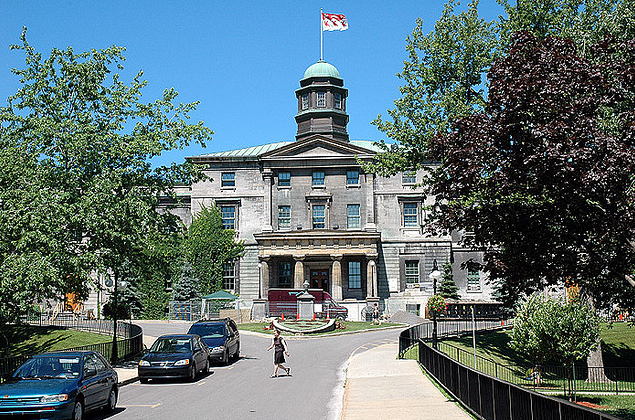
A McGill University student launched a website containing numerous documents obtained by requests filed under the Access to Information Act about the university, including contracts, investments and security reports.
McGilliLeaked features contracts with security, the university’s dealings with the company MIR3 that is in charge of mass emergency text messaging notifications as well as documents from McGill University Non-Academic Certified Association, the university’s labour union for non-academic support staff.
It also includes security reports and reports from the sixth floor student occupation and Service de police de la ville de Montréal’s reports from the Nov. 10 protest against the tuition fee increase and brief occupation at McGill.
Christopher Bangs, an honours economics student at McGill, is the creator behind this newly launched website. Bangs explained that he received various documents from concerned students and some Montreal university newspapers, which he put online.
“Over the last year or so, a lot of students submitted access to information requests to McGill, and we got interesting documents,” Bangs said. “After getting the response, people took what they got home, and none of us had copies of the others’ documents. This site is supposed to fix that, so that everyone has access to everything we have gotten from the university.”
In contrast to McGillLeaks, a website with a similar name that was closed down due to documents being retrieved illegally and then uploaded afterwards, McGilliLeaked is a website with documents obtained legally and has no relation to McGillLeaks. Furthermore, Bangs said he didn’t come up with the name for the site himself.
The online initiative has garnered support from students like Lisa Bartczak, a first-year education student at McGill, who believes that this website will “help shed light on the fact that McGill really mismanages its money and resources.”
First-year biochemistry student, Kyle Acton, said he believes that this website is based on reason, allowing anyone to verify the university’s expenses and actions. This is just the reaction that Bangs had hoped for.
“The site benefits everyone at McGill University, because we deserve to know what our university does on our behalf,” Bangs said. “That includes where it spends money, what it invests in, who funds its research, and how it governs its own activities.”
Bangs stated that “feedback was overwhelmingly positive, and [he] will keep on publishing any documents people want.”
There are times where the university can refuse documents being uploaded onto the site, such as those concerning serious security issues, The McGill Daily reported.
“I hope that we can use these documents to better understand our school’s place in Quebec,” Bangs said.



